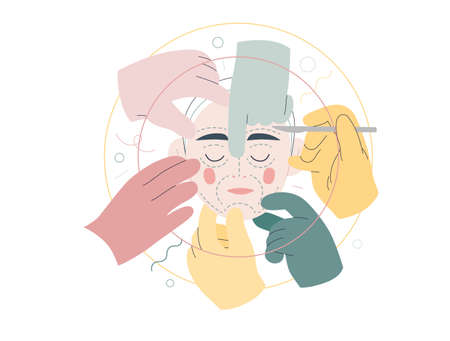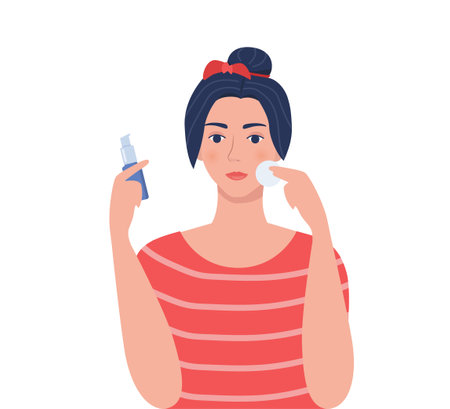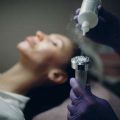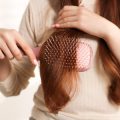What Is Collagen and Why Does It Matter?
When it comes to beauty and wellness trends, collagen is definitely having its moment in the spotlight. But what exactly is collagen, and why are so many people talking about it, especially when it comes to hair growth? Collagen is the most abundant protein in our bodies, acting as a key building block for our skin, bones, muscles, and—yes—our hair. Think of it as the “glue” that helps hold everything together. In recent years, you’ve probably seen collagen supplements everywhere—from powders at your local grocery store to trendy drinks at coffee shops. People are adding it to their morning smoothies or taking capsules, all in hopes of getting healthier skin, stronger nails, and fuller-looking hair. The hype isn’t just marketing; as we age, our natural collagen production slows down, which can impact how our hair looks and feels. For anyone hoping for stronger, more resilient hair, understanding collagen’s role is a good place to start.
2. How Collagen Impacts Hair Growth
Collagen is a key player in the world of hair health, but its actual effects go deeper than what most beauty ads tell you. Scientifically, collagen is the most abundant protein in your body and acts as a building block for skin, hair, and nails. When it comes to hair, collagen helps maintain the strength of your scalp’s dermis—the middle layer where hair roots are anchored.
The Science Behind Collagen and Hair:
| How Collagen Works | What This Means for Your Hair |
|---|---|
| Provides amino acids (like proline and glycine) necessary for keratin production | Supports stronger, healthier hair strands |
| Acts as an antioxidant that fights free radical damage | May help slow down age-related hair thinning |
| Boosts scalp elasticity and hydration | Can create a better environment for hair growth |
| Supports connective tissue in the dermis layer of the scalp | Keeps hair roots stable and potentially reduces breakage |
Real-Life Results: What Can You Expect?
In real life, taking collagen supplements won’t magically give you super thick or Rapunzel-like hair overnight. Studies suggest collagen may help with overall scalp health and reduce some types of age-related hair loss—but these results aren’t guaranteed for everyone. Most users report subtle improvements: less breakage, slightly shinier strands, and sometimes slower shedding. But if you’re struggling with major hair loss or thinning due to genetics or medical conditions, collagen alone probably won’t be a game-changer. As a consumer, its important to have realistic expectations and see collagen as just one piece of the bigger picture when it comes to healthy hair routines.

3. Sources of Collagen: Food, Supplements, and More
When it comes to supporting hair growth through collagen, you have a few options in the U.S.—and honestly, they’re everywhere. Bone broth is one of the oldest and most natural sources. It’s made by simmering animal bones (usually chicken or beef), which releases not just collagen but also other nutrients that are good for your skin, joints, and yes—your hair. But let’s be real: not everyone has time to make bone broth from scratch, and even the store-bought stuff can get pricey or taste a bit too “old school” for some people.
That’s where collagen supplements come in. Walk into any grocery store or pharmacy in the U.S. these days, and you’ll see shelves packed with collagen powders, capsules, and even gummies. Most are made from bovine (cow) or marine (fish) collagen. The powder form is super popular since you can toss it into your morning coffee or smoothie without really tasting it. Just keep in mind that quality varies a lot—some brands add unnecessary fillers or sugars, which doesn’t do you any favors if you’re trying to eat clean.
If you prefer to stick with whole foods, other options include gelatin (think Jell-O style desserts), pork rinds, egg whites, and certain cuts of meat with connective tissue. While these might not be as trendy as powders or gummies, they still pack a collagen punch.
What should you watch out for? Not all collagen products are created equal. Some U.S. brands use questionable sourcing or add artificial flavors and sweeteners that aren’t great for your overall health. Also, dietary supplements aren’t tightly regulated by the FDA, so always look for third-party testing on labels to make sure what you’re buying is actually safe and contains what it claims.
Bottom line: Whether you go for bone broth, supplements, or food sources, getting enough collagen could help support healthier hair—but don’t expect miracles overnight. Consistency matters, and so does choosing high-quality sources that fit your lifestyle and budget.
4. Is Collagen a Miracle Cure? Separating Facts from Hype
Let’s be real—collagen is everywhere right now, from fancy hair gummies to Instagram ads promising Rapunzel-level hair growth. But before you toss your cash at the latest collagen supplement, it’s important to separate fact from hype, especially if you’re hoping for dramatically stronger or thicker hair.
Collagen does play a role in supporting healthy hair because it provides amino acids that are used to build keratin—the protein making up your hair. But is it a miracle cure? Not exactly. Here’s a breakdown of what collagen can and cannot do for your hair:
| What Collagen Can Do | What Collagen Cant Do |
|---|---|
| Support overall scalp health and hydration | Regrow lost hair in cases of genetic baldness |
| Potentially reduce brittleness and breakage | Deliver instant results—hair growth takes time! |
| Provide building blocks for stronger strands | Replace good nutrition, stress management, or medical treatment |
The bottom line: If you’re already eating a balanced diet and taking care of yourself, adding collagen might give your hair a gentle boost. But don’t expect overnight miracles or total transformation if you’re dealing with major hair loss or thinning due to genetics or health conditions.
As a consumer, it’s smart to look past the marketing and ask tough questions. Does the brand share clinical research? Are there reviews from real people with similar concerns? And most importantly: Are you pairing collagen with other healthy habits (like getting enough protein, vitamins, sleep, and managing stress)? Collagen can be part of the solution—but it isn’t the whole story.
5. Tips for Boosting Hair Health Beyond Collagen
While collagen is a hot topic in the world of hair growth, it’s just one piece of the puzzle when it comes to achieving strong, healthy hair. If you’re looking for other practical, American lifestyle-friendly ways to support your hair and overall wellness, here are some real-world tips that go beyond popping a collagen supplement.
Eat a Balanced Diet Rich in Key Nutrients
Your hair needs more than just collagen to thrive. Focus on a diet packed with protein (think lean meats, eggs, or plant-based options), iron (spinach, beans), zinc, and vitamins A, C, D, and E. Americans love convenience, so consider prepping quick salads or smoothie bowls loaded with these essentials.
Keep Stress Levels in Check
Chronic stress can trigger hair loss—something many of us have experienced firsthand during busy work weeks or life changes. Try integrating stress-busting activities like regular walks around your neighborhood, meditation apps (Headspace or Calm are favorites), or even short yoga sessions at home.
Practice Smart Hair Care Habits
It’s tempting to experiment with trending hairstyles and products, but over-styling and excessive heat can weaken hair over time. Use a heat protectant spray before styling tools, avoid tight ponytails that pull on your roots, and opt for gentle shampoos without harsh sulfates whenever possible.
Stay Hydrated
Dehydration affects every part of your body—including your scalp and hair. Carrying a reusable water bottle is an easy American habit that helps keep hydration top of mind throughout the day.
Get Enough Sleep
Don’t underestimate the power of a good night’s rest. Your body repairs itself while you sleep, including supporting healthy hair follicles. Aim for 7-9 hours each night—a goal that’s doable with some smartphone downtime and a consistent routine.
See a Professional When Needed
If you notice sudden or severe hair loss, don’t hesitate to consult a dermatologist or healthcare provider. Sometimes underlying health issues like thyroid problems or nutrient deficiencies need professional attention beyond what lifestyle tweaks can offer.
The bottom line? While collagen can be helpful, it’s not a magic bullet. Building sustainable habits that fit into your busy American life will set you up for healthier hair—and better overall wellness—in the long run.
6. Bottom Line: Should You Try Collagen for Your Hair?
If you’re considering collagen supplements to boost your hair growth, it’s important to weigh a few key factors before making a purchase. Here’s a real-world look at what you need to know as a consumer.
Cost
Collagen supplements aren’t cheap. Prices vary depending on the brand, type (bovine, marine, etc.), and form (powder, capsules, gummies). While some people see them as an investment in beauty and health, others find the monthly cost tough to justify—especially when results are not guaranteed.
Effectiveness
The science behind collagen for hair growth is still emerging. Some users report thicker, shinier hair after consistent use, while others notice little or no difference. Much of the evidence is anecdotal; clinical research is limited and results can vary based on diet, genetics, and overall health.
Safety
Generally speaking, collagen supplements are considered safe for most people when taken as directed. However, if you have allergies (especially to fish or eggs), dietary restrictions, or take other medications, consult with your healthcare provider first. Also, be wary of brands that include unnecessary additives or sugar.
What to Keep in Mind Before You Buy
- Read ingredient labels closely—look for quality and transparency from brands.
- Manage expectations: don’t expect overnight miracles.
- Pair collagen with a balanced diet and healthy habits for best results.
The Takeaway
Trying collagen for hair growth is a personal choice. If you’re willing to invest and understand that results may take time—or might not happen at all—it could be worth exploring. Just remember: there’s no magic pill for hair growth. Do your homework, listen to your body, and make decisions that fit your lifestyle and budget.


